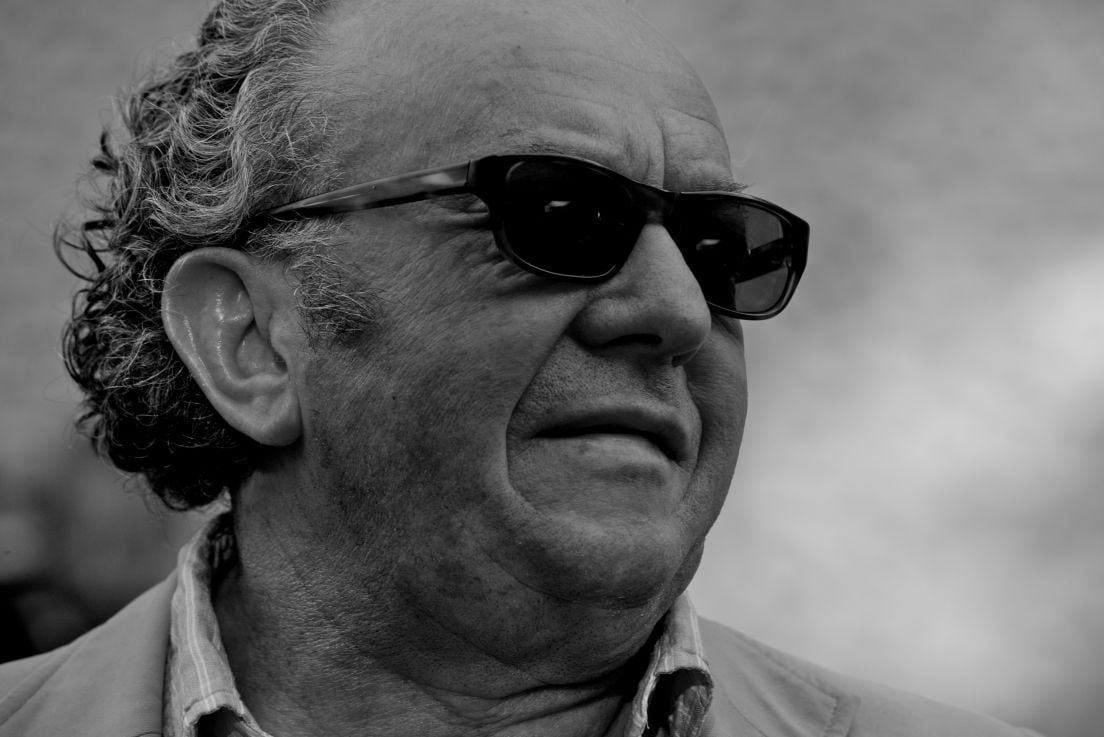
Gerald Zschorsch
- Germany
- Zu Gast beim ilb: 2012
Gerald Zschorsch was born in Elsterberg, Vogtland (East Germany) in 1951. Because of his demonstration of sympathy with the Prague Spring, he was placed in confinement in 1968. In 1972 he was imprisoned again, this time for five years, after reciting his own poems in public. In 1974, the Federal Republic of Germany bought him free, and he lost his GDR nationality. He moved to West Germany and studied Literature and Philosophy in Gießen, before moving to Frankfurt/Main, where he became an independent writer.
Zschorsch’s experiences in the 1970s and his move from East to West were the themes of his debut »Glaubt bloß nicht, daß ich traurig bin« (1977, tr.: Do not believe that I am sad). This collection of protest songs, poems and prison notations were expressions of the doubt, the objections and the criticism of the writer, who did not subscribe to either of the offers of identification the two societies made. His poem »Grenzübertritt« (tr.: Border-crossing) can be considered a prophecy from today’s perspective. This work is inspired by Heine’s »Germany: A Winter’s Tale« and the poet’s dream of a unified Germany in words: »And waiting near the border / with poems and a song / so that through many verses / the wall cannot hold strong.« Gerald Zschorsch subsequently published several anthologies, which are characterized by his concise style and a sarcastic, staccato-like language, and yet contain erotic, enigmatic and melodious verses, too. A collection of all texts published so far appeared in 2004: »Torhäuser des Glücks« (tr.: Gate lodges of happiness), which traces the author’s development from a »sound that is emulating Heine and Biermann« in his early works towards his narrative poetry and the lyricism of introspection. His combat attitude and a general mood of anger mark most of his texts. They are Zschorsch’s tools to fight against the violence of education and political socialization. Inspired by his journeys through Eastern Poland up to the Curonian Spit he published his prose poem »Czerwonka« in 2006. The title refers to a town at the Dadaj Lake (Ermland). The four parts of this work consist of descriptions of nature, and a series of names of towns and fields that alternate in a kind of »linguistic-magical invocation«. In the poems of the collection »Zur elften Stunde« (2009; tr.: At the eleventh hour), Zschorsch’s thoughts go back to the places of his childhood, which he tends to see now in a more lenient way. His recent publication, »Es war einmal eine Frau« (2011; tr.: Once there was a woman) includes poems written in four decades, and present him first and foremost as a love poet.
Gerald Zschorsch was a fellow at Villa Massimo and Villa Concordia. In 2001, he received the Adolf Mejstrik Honorary Award for Poetry from the German Schiller Foundation. Since 2010 he has been a member of the Saxon Academy of the Arts. Gerald Zschorsch lives in Frankfurt am Main.
Glaubt bloß nicht, daß ich traurig bin
Prosa, Lieder
Verlag Europäischer Ideen
Berlin, 1977
Torhäuser des Glücks
Suhrkamp
Frankfurt a. M., 2004
Czerwonka
Suhrkamp
Frankfurt a. M., 2006
Zur elften Stunde
Suhrkamp
Frankfurt a. M., 2009
Es war einmal eine Frau
Berlin Verlag
Berlin, 2011
